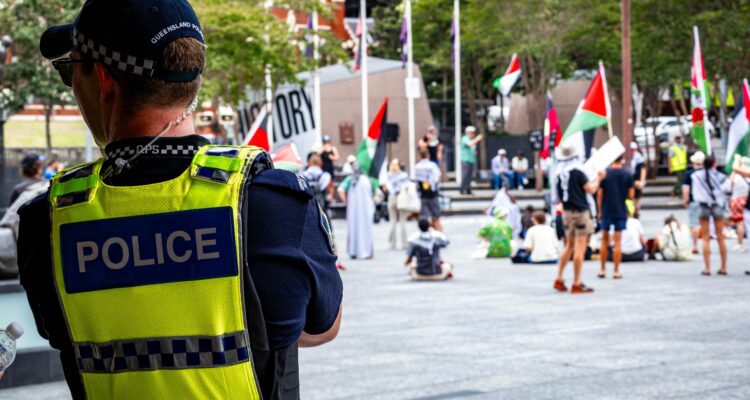“Why should we hire you?” is one of the most common — and most important…

Have you ever thought about careers in policing? Are you looking to apply for the police force?
The police force offers opportunities to specialise in a variety of areas. It’s an ideal career for those who want to help others.
So, what are the benefits of jobs in policing, and what are some of the roles available?
Benefits of Careers in Policing
Careers in policing offer many benefits, including:
• Performing a variety of duties: Tasks may include issuing fines, interviewing suspects, and collecting evidence.
• Building strong relationships: Officers form close bonds with colleagues while working together to serve the community.
• Enjoying flexibility: Shift work provides varied hours and opportunities for daytime family time.
• Using problem-solving skills: Officers apply analytical thinking to investigate and resolve incidents.
• Making a community impact: Police protect the public and support people through challenging situations.
• Having job security: Ongoing demand ensures long-term career stability.
• Staying physically active: The role helps maintain fitness through physically demanding tasks.
• Developing life skills: Officers gain transferable skills such as teamwork, empathy, and communication.
• Receiving generous entitlements: Benefits include competitive salaries, leave, superannuation, and rural/remote allowances.
What Roles Are Available in the Police Force?
Within the police force, there are various specialist policing roles available. These include:
Air Wing
The Air Wing provides aerial support for police operations. This may include general aerial observations or searching for missing persons, offenders, vehicles, or vessels. It can also include land- and sea-based rescue.
Detective
Detectives investigate a wide range of committed and suspected crimes. Their responsibilities include:
• Preventing, detecting, and investigating crime.
• Apprehending and charging offenders.
• Providing evidence in court.
• Overseeing some crime scenes.
• Assisting specialist groups to investigate complex matters.
To apply, you need three years of general duties policing experience.
Major Collision Unit
The Major Collision Investigation Unit (MCIU) attends and investigates fatal and life-threatening vehicle collisions. This includes incidents where:
• There is evidence of drug use, excessive speed, alcohol consumption, fatigue, distraction, or similar offending by a surviving driver.
• A police employee (on or off duty) was driving a vehicle involved.
• An on-duty employee or a police vehicle was involved.
• The collision resulted from a police pursuit.
• The collision is a hit-and-run.
• Three or more fatalities resulted from the collision.
To apply, you must be eligible for detective positions.
Heavy Vehicle Unit
The Heavy Vehicle Unit (HVU) focuses on the enforcement and regulation of heavy vehicle operations and forms part of a broader road policing and compliance section. The unit typically consists of frontline officers who carry out on-road enforcement, supported by a team of investigators who handle more complex or criminal matters involving heavy vehicles.
Heavy vehicles are generally defined as those with a gross vehicle mass over 4.5 tonnes. This category also includes larger buses and a range of commercial trucks.
Some of the areas the unit investigates include:
• Fatigue management.
• Vehicle standards.
• Load restraint.
Mounted Branch
The Mounted Branch focuses on horsemanship and mounted patrol skills. It provides support for:
• Public order management, including working around flares and fireworks.
• Planned and targeted patrols.
• Land searches.
• Ceremonial duties at events such as funerals.
• National Police Remembrance Day.
• Community engagement events.
To join the Mounted Branch, you must have two years of general duties policing experience. You must also pass a pre-selection horse riding course.
Armed Crime Squad
The Armed Crime Squad attends situations involving armed robbery, aggravated burglary, or attempted offences. The squad responds to:
• Situations where a firearm has been produced.
• Organised trafficking and illegal disposal of firearms.
• Shootings.
• Kidnappings and abductions.
To join the Armed Crime Squad, you must be a qualified detective.
Water Police
The Water Police Unit is responsible for policing waterways, including coastal waters, rivers, lakes, and ports. The unit typically:
• Coordinates on-water searches and rescues involving vessels or people in distress.
• Provides 24/7 patrol coverage in major waterways or port areas.
• Manages marine search and rescue operations.
• Enforces laws and regulations in marine environments.
• Supports port security and marine-related counter-terrorism operations.
• Conducts swift water and flood rescues, as well as inland search and rescue missions.
To join, applicants are usually required to have a minimum of two years’ experience in general policing duties.
This guide covers just some of the many specialist roles available within the police force. Others include cybercrime, forensics, family violence, and tactical operations.
Are you considering a career in the police force? Selection Criteria Writers’ expert career counselling is ideal for those needing to make major career decisions.
Article References
Indeed (4 March 2025) ‘11 Reasons To Become a Police Officer (Plus Duties)’, Indeed, accessed 17 June 2025.
Public Service Resumes (n.d) ‘Careers In Focus: Policing’, Public Service Resumes, accessed 17 June 2025.
Victoria Police (n.d) ‘Specialist roles and areas for police officers’, Victoria Police, accessed 17 June 2025.



